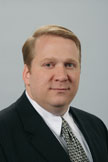FOR IMMEDIATE RELEASE
April 20, 2022
Contact: Eric W. Boyer, Esq.
Managing Partner
305.670.1101 Ext. 1023
Email: eboyer@qpwblaw.com
QPWB SCORES SIGNIFICANT VICTORY FOR ASSISTED LIVING FACILITIES
Assisted Living Facilities Act exclusive remedy provisions
TALLAHASSEE, Fla., First District Court of Appeals ― QPWB Tampa office partners Thomas A. Valdez and Vilma Martinez won another significant appellate decision in favor of their client, Autumn Village, and for assisted living facilities as a whole, in the case of Patrice Cohen v. Autumn Village, Inc., 2022 WL 1163450 (Fla. 1st DCA 2022).
In January 2020, Patrice Cohen, a resident of Autumn Village’s assisted living facility, filed a complaint in which she alleged that in March 2017, an employee of the assisted living facility placed a food tray in front of a resident’s door, that the cup on the tray spilled and created a puddle on which Cohen allegedly slipped, fell and sustained injuries. Cohen asserted that Autumn Village was negligent in allowing the dangerous condition to exist and attempted to state a “slip and fall” claims based on common law principles of premises liability.
QPWB litigation and trial partner Robin N. Khanal, who represented Autumn Village in the lower court, moved to compel arbitration. Mr. Khanal on behalf of Autumn Village argued that the Assisted Living Facilities Act (“ALFA”) provides the exclusive remedy for suits brought by assisted living facility residents seeking damages for personal injuries caused by negligence; that Cohen had failed to comply with the ALFA’s pre-suit requirements and its two-year statute of limitations; and that Cohen’s effort to plead around the exclusive remedy provision was an effort to circumvent the express requirements of the ALFA in an effort to revive a claim barred by the Act’s two-year statute of limitations.
In response, Cohen asserted her claim was not brought under the ALFA and argued the ALFA only covers claims arising from abuse, neglect, or deficient care in connection with the provision of professional medical services; and should not apply to a common-law negligence claim based on a slip and fall. More specifically, Cohen asserted her claim fell outside the scope of the ALFA, its exclusive remedy provision, and that the claim should be governed by common law premises liability principles.
After hearing argument from both parties, the trial court granted Autumn Village’s motion to dismiss; Cohen appealed.
On appeal, Cohen argued that the ALFA’s exclusive remedy provision did not apply to a common-law slip-and-fall case like hers. Instead, she contends that it was meant to cover only professional negligence claims. On that basis, she argued that she is not subject to the pre-suit notice requirement or the two-year statute of limitations.
Valdez and Martinez argued that civil actions against assisted living facilities are subject to the following exclusive remedy provision enumerated in Section 429.29(1), Fla. Statutes:
Sections 429.29–429.298 provide the exclusive remedy for a cause of action for recovery of damages for the personal injury or death of a resident arising out of negligence or a violation of rights specified in s. 429.28. This section does not preclude theories of recovery not arising out of negligence or s. 429.28 which are available to a resident or to the agency.
Valdez and Martinez argued that claims “arising out of negligence or a violation of residents rights” fall within this provision are subject to certain procedural requirements. For instance, before filing a claim for a violation of a resident’s rights or a claim for negligence, a claimant alleging injury to or the death of a resident must comply with pre-suit requirements, including providing notice to the prospective defendant, and that such claims are subject to a two-year statute of limitations under sections 429.293(2) & 429.296(1) of the Florida Statutes.
Florida’s First District Court of Appeal agreed and rejected Cohen’s argument. In its written opinion, the District Court of Appeal stated the plain and unambiguous language of the exclusive remedy provision applies to cases for recovery of damages for the personal injury or death of a resident “arising out of negligence or a violation of resident’s rights. § 429.29(1), Fla. Stat. The Court went on to explain that, based on this statutory text alone, there is simply no basis to limit its reach to claims arising solely from professional negligence. The Court further explained that reading the exclusive remedy provision in context with other portions of the ALFA reinforces this interpretation.
The Court’s well-reasoned opinion pointed out that section 429.293(1)(a), Florida Statutes, defines a “[c]laim for residents’ rights violation or negligence” to mean “a negligence claim alleging injury to or the death of a resident arising out of an asserted violation of the rights of a resident under s. 429.28 or an asserted deviation from the applicable standard of care.” (emphasis added). Section 429.29(3), Florida Statutes, then provides that “[i]n any claim brought pursuant to this section, a licensee, person, or entity shall have a duty to exercise reasonable care. Reasonable care is that degree of care which a reasonably careful licensee, person, or entity would use under like circumstances.”
The Court reasoned that the language of these provisions encapsulates common-law negligence, including the traditional common-law standard of care. See Kohl v. Kohl, 149 So. 3d 127, 131 (Fla. 4th DCA 2014) (“As developed by the common law, a cause of action for negligence arises where one’s ‘failure to use that degree of care which a reasonably careful person would use under like circumstances causes injury.” (quoting London v. Atl. Mut. Ins. Co., 689 So. 2d 424, 425 (Fla. 4th DCA 1997))).
The Court noted Comparison of the ALFA to the Florida Medical Malpractice Act (“FMMA”), Chapter 766, Florida Statutes, provides a helpful contrast. It explained the FMMA applies to “medical negligence” or “medical malpractice” claims (i.e., professional negligence claims) arising out of the “rendering of, or the failure to render, medical care or services.” Simmons v. Jackson Mem’l Hosp., 253 So. 3d 59, 61 (Fla. 3d DCA 2018) (quoting § 766.106(1)(a), Fla. Stat.). And that, per the terms of the FMMA, § 766.102(1), Fla. Stat. (2017): “the claimant shall have the burden of proving by the greater weight of evidence that the alleged actions of the health care provider represented a breach of the prevailing professional standard of care for that health care provider. The prevailing professional standard of care for a given health care provider shall be that level of care, skill, and treatment which, in light of all relevant surrounding circumstances, is recognized as acceptable and appropriate by reasonably prudent similar health care providers.” And further highlighted the fact that the FMMA includes guidelines for expert testimony about the professional standard of care. § 766.102(5)–(12), Fla. Stat. (2017).
With that background in mind, the First District Court, through the analysis under FMMA, the Florida Legislature has shown that it knows how to limit an act to professional negligence claims. The Court noted, for one, that guidelines for expert testimony are absent from the ALFA. Professional standards are also absent from the ALFA with one notable exception. Section 429.29(4) provides:
“In any claim for resident’s rights violation or negligence by a nurse licensed under part I of chapter 464, such nurse shall have the duty to exercise care consistent with the prevailing professional standard of care for a nurse. The prevailing professional standard of care for a nurse shall be that level of care, skill, and treatment which, in light of all relevant surrounding circumstances, is recognized as acceptable and appropriate by reasonably prudent similar nurses.”
The Court stated that although this language closely mirrors the language from the FMMA, but identified that when the Legislature intended for a professional standard to apply, it expressly provided a professional standard of care. The Legislature did not choose to apply such limitations when drafting the ALFA.
The First District concluded that the clear and unambiguous language of the ALFA shows that the Legislature intended for a common-law negligence claim like Cohen’s to be brought within the framework of the Act; that Cohen failed to comply with the ALFA’s pre-suit requirements and its two-year statute of limitations; and, on that basis affirmed the trial court order dismissing her complaint with prejudice.
This result is meaningful for Assisted Living Facilities because it is the first of its kind regarding the ALFA and provides clear guidance on the statute, its procedural requirements, and the types of claims covered under ALFA’s broad exclusive remedy provision.
QPWB’s litigation and trial attorneys are pleased with this victory on behalf of its ALF clients and the industry. Mr. Valdez, who chairs the Appellate Practice Group, attributes this victory to the firm’s focus on early internal collaborations with its litigation and trial teams and the firm’s litigation support initiatives, which allows appellate counsel and litigation counsel the opportunities to develop strategies early on in the cases.
# # #
Thomas A. Valdez is a Partner in the Tampa office and Chairs the firm’s Appellate Practice Group which provides clients with both traditional appellate services and proactive trial support services before, during and after trial. Although his practice is mainly focused on appellate practice, he also devotes his time to defending long term care, medical malpractice, general liability, commercial and construction claims. He earned his law degree with high honors from Florida State University College of Law in 1997.
Vilma Martinez is a Partner in the Tampa office. Her practice is emphasized in the areas of medical and dental malpractice defense, nursing home, and assisted living negligence defense, and the representation of healthcare providers in administrative proceedings. She is a Florida licensed Health Care Risk Manager and provides legal counsel to healthcare facilities and others since 2010 in all her areas of practice and pertaining to electronic health records, e-discovery, healthcare technology, HIPAA compliance and data breach response. Her practice also focuses on premises liability, automotive liability, catastrophic injury, and wrongful death matters. Ms. Martinez received her law degree from Stetson University College of Law in 2009. She is fluent in Spanish, and proficient in Mandarin Chinese and French. She served in the United States Army for two years and received numerous military honors before her honorable discharge in December 1997.
QPWB is the largest minority and woman owned law firm in the nation with approximately 400 lawyers serving clients from 30 offices in the U.S. and abroad. Our lawyers provide representation in litigation, business, real estate and governmental law.

